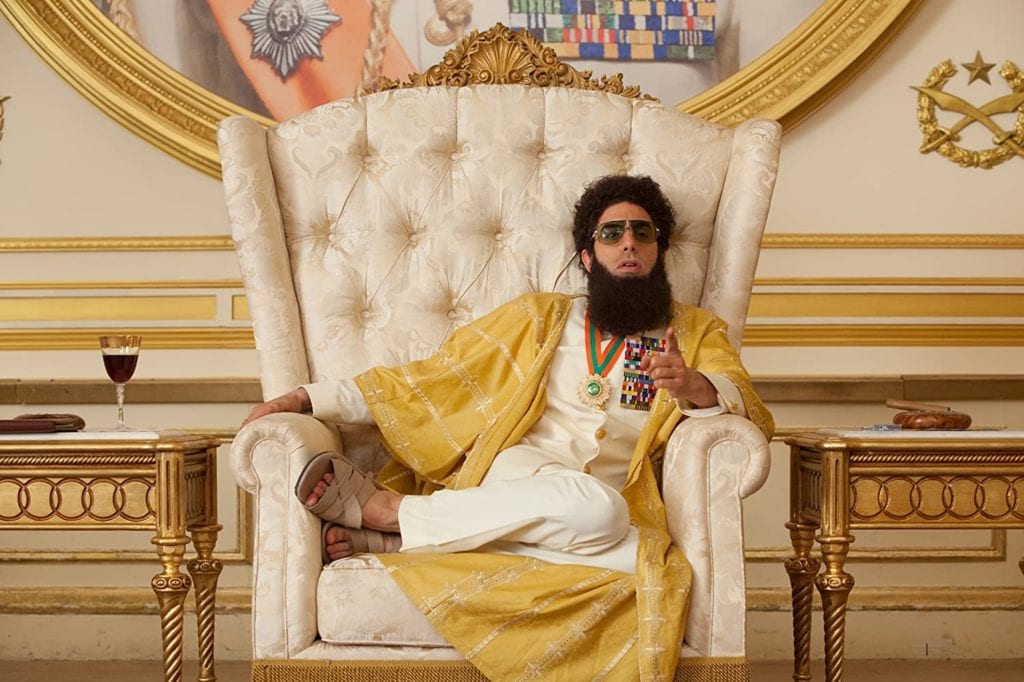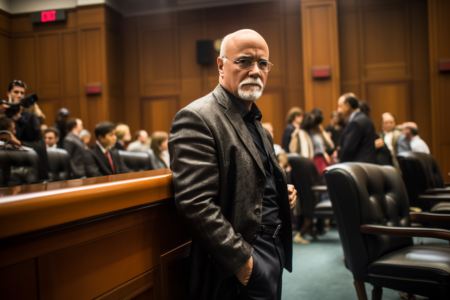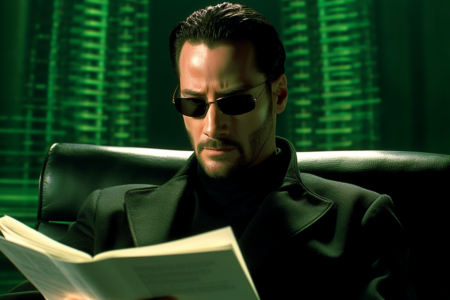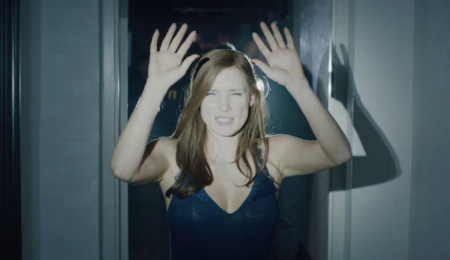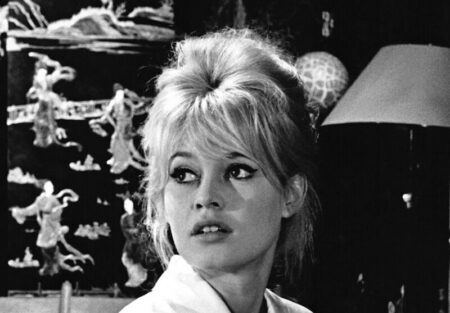Movies that feature controversial star Sacha Baron Cohen are not for the faint-hearted, and that’s certainly the case when it comes to The Dictator. His previous movies like Borat and Bruno are those that have most viewers cringing or making some sort of noise that expresses their feelings of awkwardness towards particular scenes.
The Dictator is Ridiculous!
The Dictator is one that’s full of jokes, some of which land perfectly, while others don’t seem to land anywhere. However, it’s those types of jokes that tend to be remembered more. The character is as offensive as they come, in the form of a genocidal dictator. It’s a political satire in nature and follows Aladeen, played by Baron Cohen, who visits New York to address the UN for international favor. A dictator of the North African nation of Wadiya, who is irritated often by the power of the Western world’s infatuation over the Arab spring.
This is combined with the stress of him having to keep Osama Bin Laden locked in one of the rooms in his palace. The Americans have taken out one of Bin Laden’s doubles, are none the wiser.
With an invasion threat coming from the US, the dictator heads over to New York to speak to the UN directly. The character Baron Cohen plays in this film is similar to that of Borat in that General Aladeen seems to find aspects of the Western culture bizarre and hard to comprehend. This allows for endless jokes and hilarious attacks on Western culture, some of which are very accurate.
Sacha Baron-Cohen has taken the same concoction that he used in Borat by having a character from a completely different culture and exposing that character to those Western customs and culture that we’re all so used to experiencing. Perhaps what makes this so funny in parts is that a lot of us might agree with some of those customs that we often just accept as being the norm but might seem odd to those who don’t have that same experience elsewhere.

A plot twist comes in the form of the General’s brother, played by Ben Kingsley, that has a treacherous plan in mind. Turns out that Tahir, Aladeen’s brother, is the rightful heir to the throne and is plotting to overthrow him. He manages to do so, which ends up with Aladeen completely penniless and unknown to those on Manhattan’s streets. A body double continues to impersonate him while all this goes on and there’s a particular moment where his beard is comically destripped by a security guard, hilariously played by John C Reily.
The Dictator Falls In Love With A Vegetarian?
He then becomes dependant on a vegetarian, feminist, cafe manager, played by Anna Faris and is the unlikely savior for Aladeen. Despite the fact that they have radical differences in beliefs and this opens up the General Admiral to delivering some particularly satirical comments about women, he finds himself falling for her. Anna Faris plays this role very well, and a lot of the gags seem to have been improvised as mentioned by Anna herself when interviewed on the film itself.

Probably the most powerful and serious part of the movie is the ending, where General Aladeen makes an impressive and thought-provoking speech. It’s a nod to just how much Sacha Baron Cohen seems to know about politics and stereotypes. It’s worth experiencing, even if you aren’t overly fussed by the rest of the film.
The movie runs just under the 90-minute mark, which is a nice amount of time to digest, unlike most comedies that tend to run a little too long. Even though his other films have been somewhat offensive, this is one that is probably the tamest one of them all. But perhaps we’ve simply become accustomed to the style and writing that Sacha Baron Cohen produces. The film isn’t as shocking or isn’t aiming with shock value in mind as his other films have provided by the bucket load.
Conclusion
If you’ve watched his previous films, then you’ll likely enjoy this one too as it follows a similar pattern. It’s a bad-taste comedy that is sure to provide a few laughs in various places throughout the film. It’s also one that’s likely to be more memorable for some of the jokes, just like his first film, Borat, is so fondly quoted by those who enjoyed it. The material that Cohen produces may be outrageously offensive, but it’s certainly hysterical in parts, and it’s that type of laughter that you’ll be stifling if watching in a public space or with others.

